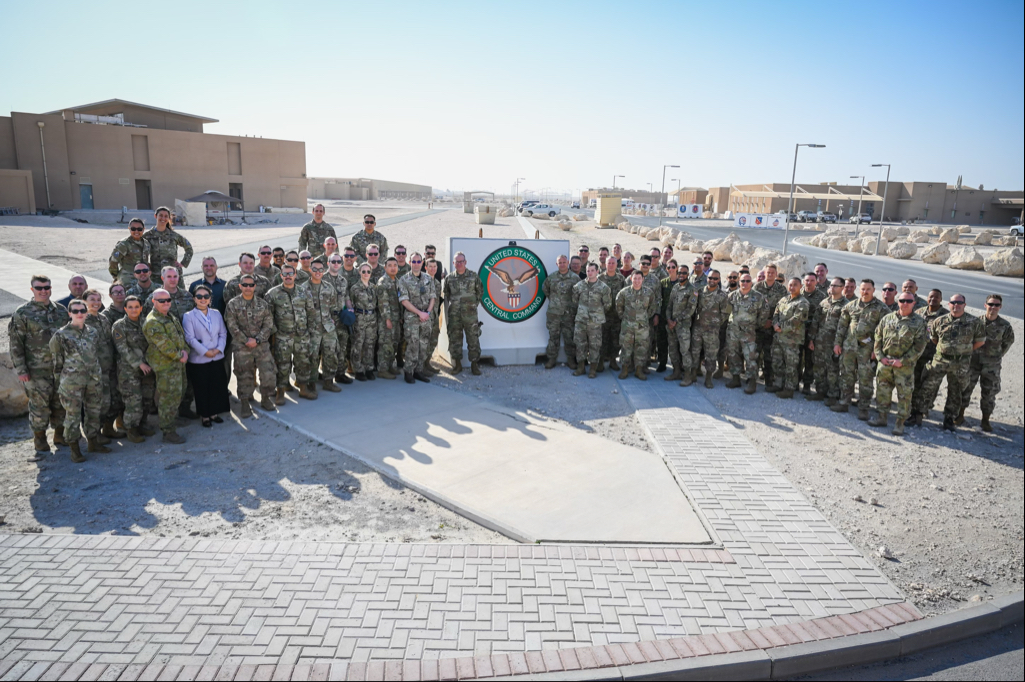Products You May Like
WASHINGTON — Several military allies of the United States in the Middle East have expressed interest in creating their own space forces, and have sought advice from the U.S. on how to accomplish this goal, Col. Christopher Putman, commander of U.S. Space Forces Central, said March 27.
“We have a lot of nations that see space as the critical combat enabler that it is and can be, and they’re coming to us for advice on how to stand up a space force, and what does that look like?” Putnam said at an event hosted by the Air & Space Forces Association.
Putnam runs a component of the U.S. Space Force that reports to U.S. Central Command, based at McDill Air Force Base, in Tampa, Florida.
Central Command oversees U.S. military operations in the region stretching from Northeast Africa across the Middle East to Central and South Asia. The Space Force component was activated in December.
Putnam recently returned from Qatar, where U.S. Central Command conducted its first “space forum” at Al Udeid Air Base, with space warfare professionals from the United States, the United Kingdom, Australia, Canada, Saudi Arabia and other nations.
“We graduated the first Space 100 cadre in the Saudi Air Force,” he said.
Space 100 is a fundamental space education course taught at the unclassified level. The course provides an introductory education level of space systems and how they are used to support global joint military operations.
While the U.S. Space Force is eager to assist its allies, he said, there is a significant challenge: a lot of the information about U.S. space systems is classified and resides in classified computers.
Teaching Space 100 at the unclassified level “was a significant lift,” he said. “So going forward, so that we can actually have fruitful conversations and work together, the answer may rely on the commercial side.”
“If we buy commercial, off the shelf systems with our partners, we avoid a lot of those security classifications. roadblocks that have inhibited us in the past,” he said. “Saudi Arabia is just one example.”

Since the U.S. Space Force stood up a component at Central Command, he said, “we have had a lot of requests from partner nations.”
They are trying to decide, for example, whether they need a dedicated space force, how to integrate space with their air force or defense departments.
“We will talk with each nation, we will have those discussions to help them figure out what looks right for them,” said Putnam. “Ultimately, if we all work together, it is a win for them, and it’s a win for us going forward.”
The chief of space operations of the U.S. Space Force, Gen. B. Chance Saltzman, has emphasized partnerships with allies as one of the service’s top priorities. “To do this, we will eliminate barriers to collaboration,” he wrote in a memo.
